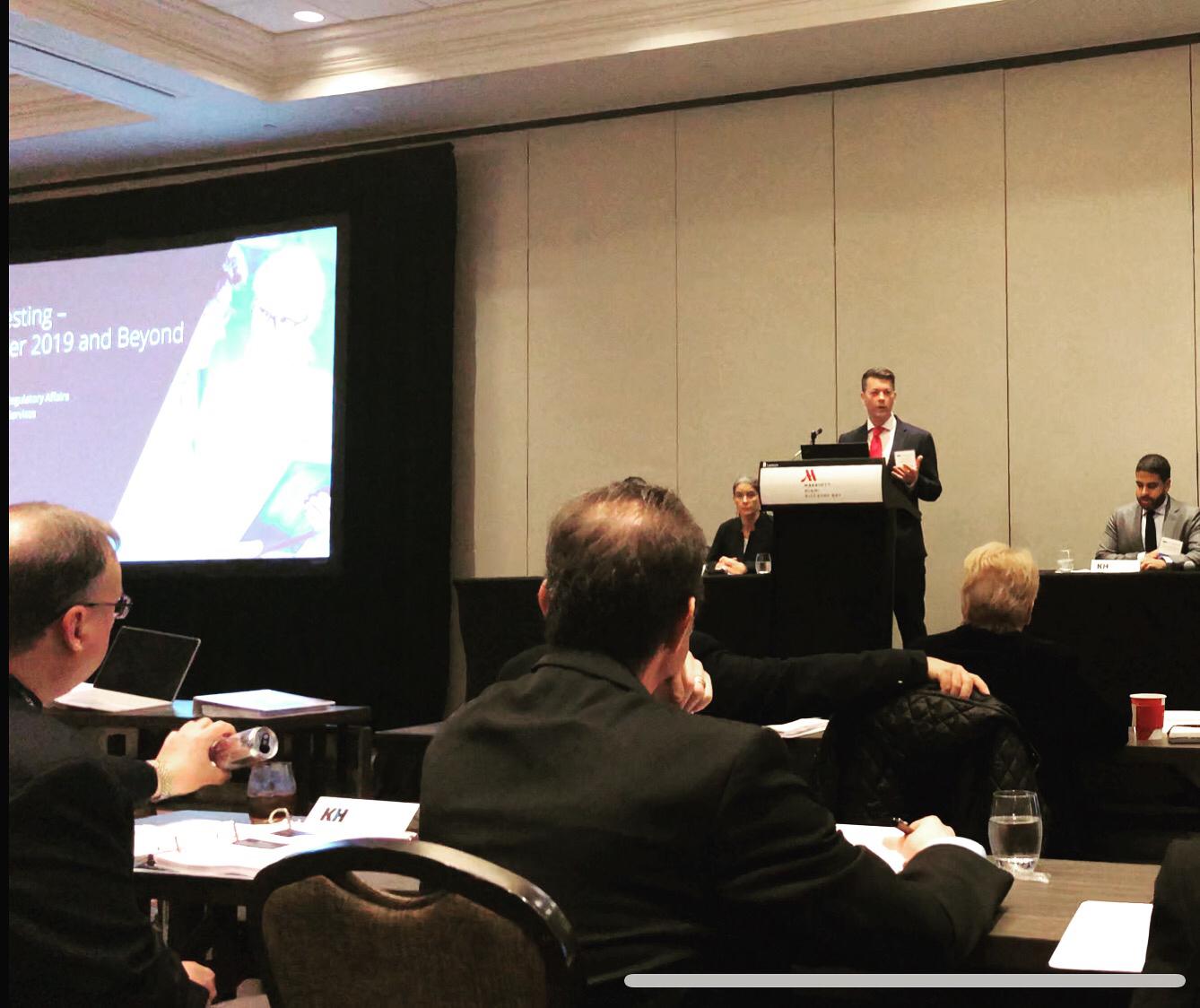Broughton Chief Regulatory Officer, Dr. Nveed Chaudhary, summarises the latest US Food and Drug Administration (FDA) Centre for Tobacco Products (CTP) update on the Premarket Tobacco Product...
PMTA readiness update from the Keller and Heckman Law Symposium
Nicotine

Feb 7, 2019 | Published by Dr. Paul Moran
Nicotine
Jan 2019, Miami, USA.
With the US regulatory deadlines getting ever closer, the Keller and Heckman Law Symposium was the perfect opportunity to keep informed on the latest industry regulatory updates.
Background to the regulations - The Tobacco Control Act and the Deeming Rule
Azim Chowdhury of Keller and Heckman presented on the Tobacco Control Act and the Deeming Rule. In 2009 the US Congress passed an amendment to the Federal Food, Drug and Cosmetic Act (FD&C Act) titled the Family Smoking Prevention and Tobacco Control Act (the Tobacco Control Act or TCA. FDA were then given primary jurisdiction over tobacco products. Congress thus allowed FDA to bring tobacco-derived nicotine products under the TCA authority by deeming them tobacco products. FDA issued a proposed deeming rule in 2014 with the final rule issued in May 2016, effective August 8, 2016 (the Deeming Rule). As a result, the Deeming Rule means that premarket review is required for all ENDS products and does not allow any modifications to ENDS products after August 8, 2016. The premarket pathway provided for in the TCA, specific to ENDS, is a Premarket Tobacco Product Authorisation (PMTA). The PMTA compliance deadline to continue to sell ENDS products in the US was extended in 2017 to August 8, 2022.
In addition to the final PMTA premarket review compliance deadline of August 8, 2022 the TCA has imposed additional compliance deadlines for ENDS manufacturers and importers. These have included registration and product listing, ingredient reporting, health document notification and labels and warnings. The next major TCA requirement is the reporting of Harmful and Potentially Harmful Constituents (HPHCs) by November 8, 2019.
HPHC Testing
The FDA have repeatedly stated they want trusted scientific data to accurately assess the safety of ENDS products in the US Market. Chris Allen of Broughton presented on HPHC testing and reporting requirements for both the November 8, 2019 HPHC deadline and PMTA August 8, 2022 deadline. He explained how testing strategies can be aligned to deliver on both business objectives. This led to a panel discussion with other representatives from the scientific community. Comprehensive analytical method validation demonstrating the sensitivity of HPHC methodologies was highlighted as a key point when conducting toxicological assessments. Conducting well-designed product characterization studies before commencing data gathering for regulatory submission should also be considered to justify scientific rationale for bridging studies. FDA will expect assumptions relating to public health risks to be backed by validated data and sound scientific judgement.
Product Stewardship including nonclinical and clinical research.
Dr Amy Madl of Cardno ChemRisk provided insight into product stewardship and advised companies to start with the end in mind to navigate beyond PMTA compliance. Designing products that will have a positive impact on the health of the population as a whole will be key to being a good product steward as we move towards innovating within this premarket regulatory pathway. An integrated research and product stewardship approach was presented highlighting the key steps towards ensuring public health protection and sustainability in the marketplace.
Dr Stacey Benson of Cardno ChemRisk gave a thorough overview of nonclinical and clinical research requirements for PMTA. In short - invest resources into product choice, strategy, and study design as early as possible to ensure work can be completed within the compliance deadline. Published literature can support clinical and nonclinical data and inform on design, bridging, and analysis of additional clinical and nonclinical studies for newly deemed tobacco products. Information from studies should be properly integrated to inform on exposure, health risk, and population level effects.
FDA Inspection Readiness
Finally, Daniel Rubenstein of Keller and Keckman highlighted that the ENDS industry should be prepared for an FDA Inspection. The FD&C have a catch-all directing FDA to inspect every establishment registered with FDA, engaged in the manufacture, compounding, or processing of a tobacco product and any factory, warehouse, or establishment in which tobacco products are manufactured, processed, packed, or held. This is an intentionally broad brush and covers most of the supply chain. FDA Inspections are underway and companies should expect to have at least one FDA inspection every two years. FDA have not yet proposed the Tobacco Product Manufacturing Practice (TPMP) but they are likely to be issued soon. It is reasonable to suggest that the TPMP will borrow from already established Code of Federal Regulations (CFR’s) including Foods (Part 110), Pharmaceuticals (Part 211), Medical Devices (Part 820) and Dietary Supplements (Part 111).
Key takeaway from the session – make sure the right team of trained and experienced people are available when FDA Inspectors visit. This includes your outsourced partners. FDA will be using the first round of inspections to learn about the industry. Agency scrutiny is expected to increase significantly after TPMPs are out so use this opportunity to start building a professional and quality-focused relationship with FDA.



